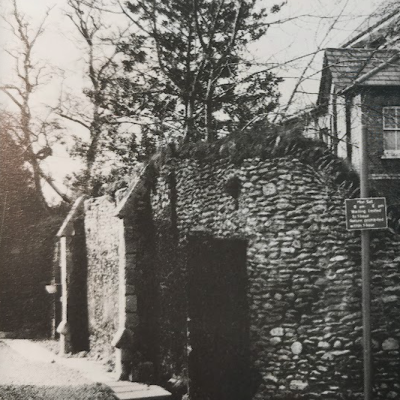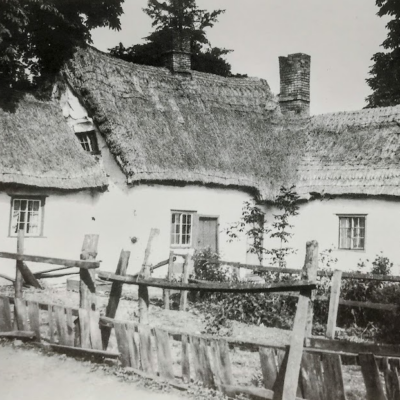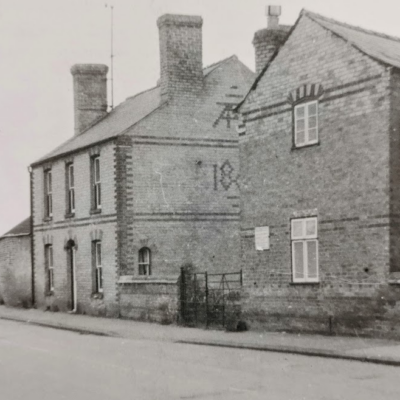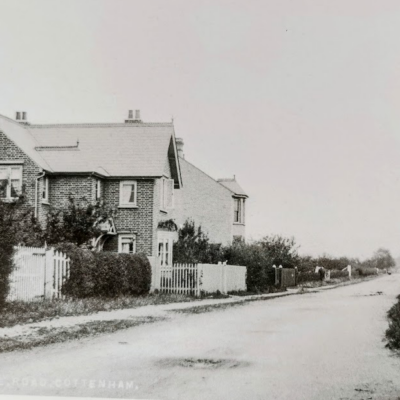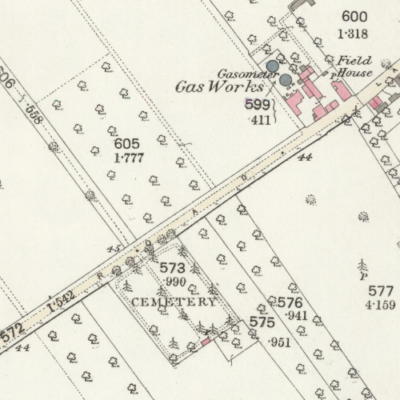Search by topic
- archaeology
- Building of Local Interest
- charity
- church
- crime
- dressmaker
- fire
- Great Eastern Railway
- Listed building
- Mapping Relief
- medieval
- oral history
- poverty
- Public House
- Rattee & Kett
- Religious House
- Roman
- scholar
- school
- Then and Now
- tudor
- women
- work
- world war one
- world war two
Search by text
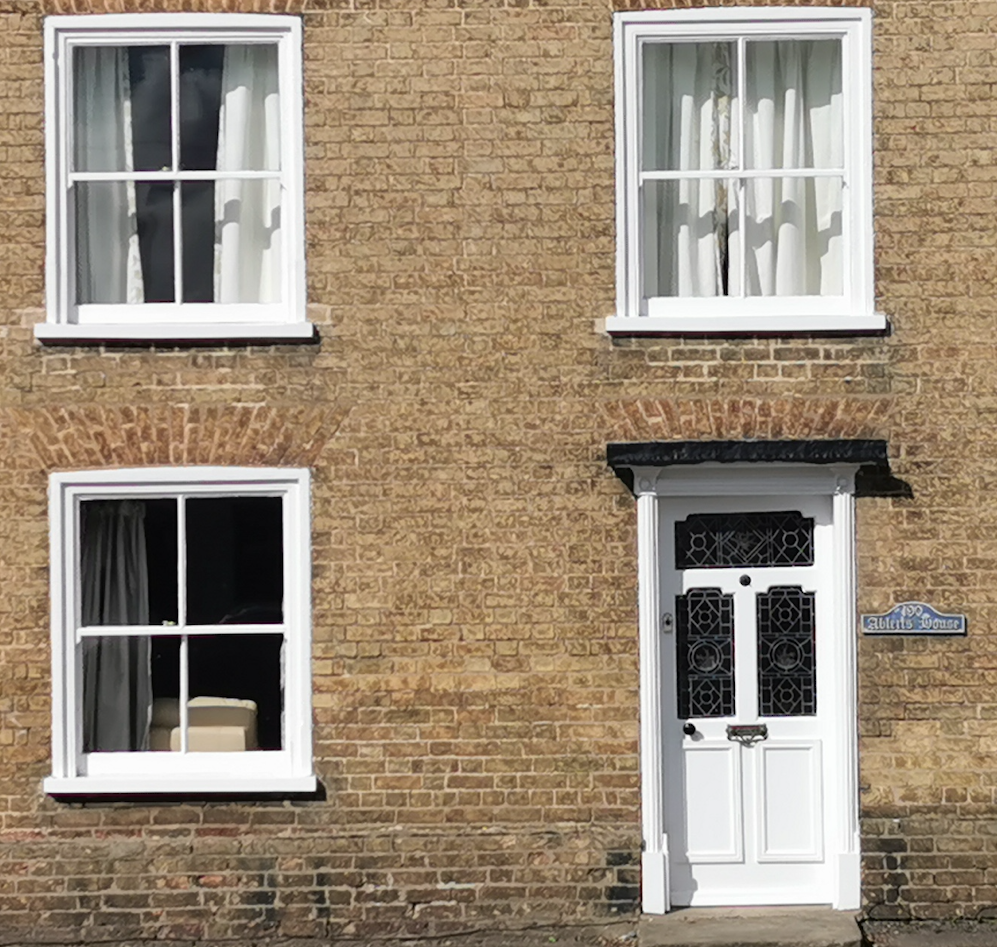 190 High Street, Cottenham
190 High Street, Cottenham190 High Street (112), Ablett’s House, Cottenham
History of 190 High Street
Listed building:
House, late C17 origin but mostly c.1850. Local gault brick, with some late C17 red brick to end wall.
1817
Jabez Ablett married Ann Finkell of Steeple Morden in 1806. At some point they moved to Cottenham and their five children, Mary, Elizabeth, Sarah, Finkell and Jabez were born in Cottenham
1841
Jabez Ablett is living at the time of the 1841 census in Cottenham High Street, possibly at this location. He was recorded as a cooper, having been an apprentice to William Eady of Huntingdon in 1806.
1846
Cambridge Independent Press 28.11.1846 records a theft:
“Thieves broke into the henhouse of Jabez Ablett and decamped with 18 plump capons. This was the fourth time Mr Ablett has been plundered in a similar manner.”
1849
As well as the fire of the 8th May, another fire is recorded in the Bury and Norwich Post (11.4.1849) that is not described in Cottenham Ablaze:
“A few weeks ago we recorded a dreadful fire at this village (Cottenham) on the premises of Mr Jabez Ablett. On Saturday last a man named Henry Creek was examined at the County Court before Lord Godolphin and the Hon E Yorke. Creek, from the time of the fire, has been in gaol for poaching (rabbits from Jabez Ablett). The following are the principal facts against the accused. The catastrophe occurred on 23rd of February. On that day a summons for poaching on Mr Ablett’s lands had been served upon Creek. That night he went to a public house, drank to intoxication, tore up the summons, thrust it into the fire, and said he would like to serve old Jabez the same, but he would soon make his farm far too hot for him. When he left shortly before the fire, he said to a companion, “You and I will go and have a flare up.” When the alarm of fire was given, he was the first person seen standing a short distance from it, cooly watching the progress of devastation. When asked by anxious inquirers, as to whose property it was burning, he exclaimed “Old Ablett’s” and gave exulting shouts like the Indian war-whoop. On the same day he met a companion to whom he said: “I’m in for it again for poaching. I don’t care what becomes of me – but, before I go, I will have a blaze.” It is also known that during the evening he had obtained some lucifers from his sisters.”
See Francis Garrett, Cottenham Ablaze:
8.5.1849: A fire devastated the High Street from the modern Fire Station site to Ablett’s House, near the location of the old fire station. 5 houses, four farms and three shops were destroyed.
The fire was first noticed on the premises of John Cross and the Cottenham fire engine arrived. Mr Cross’s property was destroyed; the fire then destroyed all the buildings of Mr Wayman the grocer.
Next were the buildings of Mr Pauley and then of John Male. Next, Mr Kimpton, cooper and measure maker.
Finally, Mr Pinchard of Ablett’s House lost his building including a schoolroom used by Miss Henrietta Finch.
The crew of the Willingham fire engine were so insulted by criticism of the state of the pipes of their fire engine that they offered to fight twenty of the best men of Cottenham; one of them produced a pistol.
Two men were arrested on suspicion of starting the fire but were released because of lack of evidence.
In 1851 Jabez Ablett and his family can be found in Chesterton. He seems to have already had property there in 1849 when another fire is recorded!
1851
Benjamin Pinchard, 50, general practitioner, b Beds
1861
Benjamin Pinchard, 60, MD Aberdeen, b Bedford
1871 approx.
Thomas Chivers, 37, farmer 162 acres employing 4 men and 2 boys, b Cottenham
1881
Josiah Ward, farmer of 12 acres
1891
Josiah Ward, 49, farmer
1901
Josiah Ward, 59, farmer, b Cottenham
1911 Ablett’s House
Sidney Gautrey, 38, fruit grower, b Cottenham
1939 (112)
Ann E Collins, b 1859
Leonard H Gautrey, b 1901, assisting father mixed farming (Air Raid Warden)
Modern: (190)
Contribute
Do you have any information about the people or places in this article? If so, then please let us know using the Contact page or by emailing capturingcambridge@
License
This work is licensed under CC BY-NC-SA 4.0





